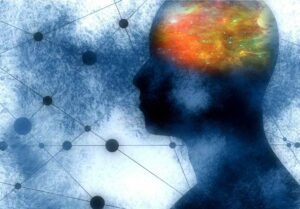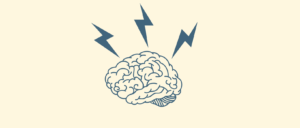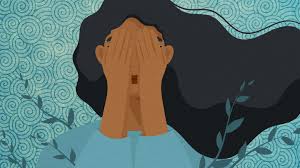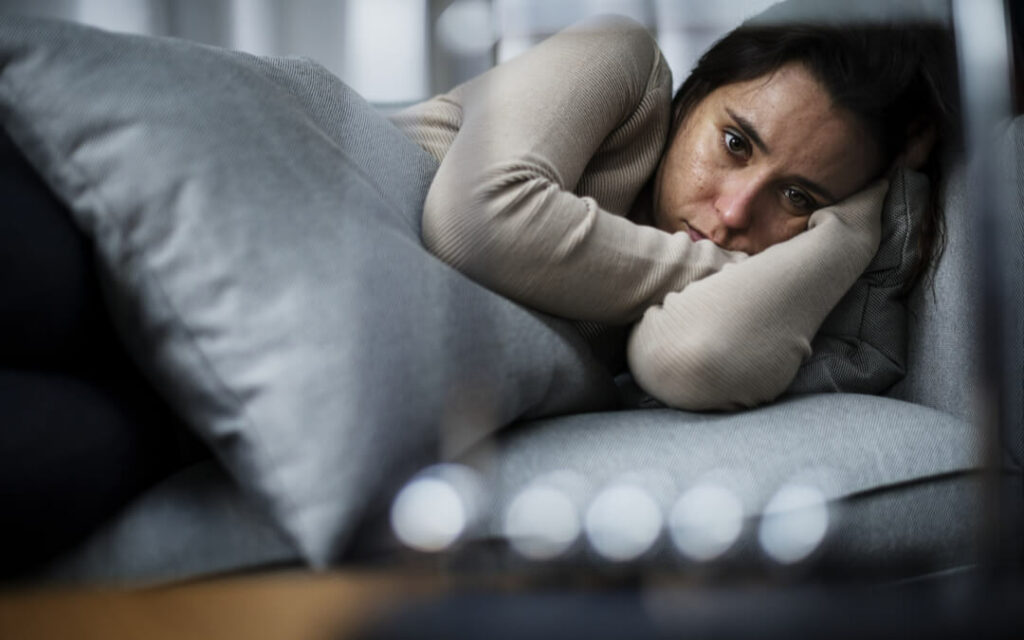Depression is a serious mental illness that affects millions of people all over the world. There are many different types of depression, but one of the most common is hormonal depression. This type of depression is caused by changes in hormone levels, and it can be difficult to overcome. If you are struggling with hormonal depression, don’t worry – you are not alone. In this blog post, we will discuss what hormonal depression is, and we will offer some tips for overcoming it.
Contents
Understanding Hormonal Depression
 Depression is described as feeling sad, blue, down in the dumps, or feeling hopeless. These feelings are more than just a case of the “blues” and they last for weeks or even months at a time. Depression can make it hard to concentrate, remember things, and make decisions.
Depression is described as feeling sad, blue, down in the dumps, or feeling hopeless. These feelings are more than just a case of the “blues” and they last for weeks or even months at a time. Depression can make it hard to concentrate, remember things, and make decisions.
Hormonal depression is basically a term used to describe a type of depression that is caused by changes in hormone levels. This type of depression can affect both men and women, but it is more commonly seen in women. There are many different hormones that can be involved in causing hormonal depression.
So, hormonal depression is a condition where a person experiences depression due to changes in hormone levels. It can affect both men and women but is more common in women. There are many different hormones that can be involved in causing hormonal depression.
Let’s further discuss some of the hormones that cause depression.
Examples Of Hormones That Causes Depression
There are many different hormones that can cause depression. Here are a few examples:
Cortisol is a stress hormone that is released in response to danger or perceived threat. It is also released in response to physical or emotional stress. Cortisol can cause anxiety, irritability, and feelings of being overwhelmed.
Estrogen is a female hormone that is involved in the menstrual cycle. Estrogen levels can fluctuate during different stages of the menstrual cycle, and this can cause changes in mood, energy levels, and sleep patterns.
Progesterone is another female hormone that is involved in the menstrual cycle. Progesterone levels also fluctuate during different stages of the menstrual cycle, and this can cause changes in mood, energy levels, and sleep patterns.
Testosterone is a male hormone that is involved in sex drive, muscle mass, and strength. Low levels of testosterone can cause fatigue, low libido, and depression.
Thyroid hormones are involved in regulating metabolism. An imbalance of thyroid hormones can cause fatigue, weight gain, and depression.
Hormonal imbalances are often the root cause of depression. If you suspect that your hormones are out of balance, it is important to see a doctor or other healthcare provider to get tested. Once the imbalance is corrected, your mood should improve. So you should understand and identify the causes of your hormonal depression.
How Hormonal Imbalance Causes Depression?
 Hormonal imbalance is basically an endocrine disorder that results when there is too much or too little of a hormone in the body. This can happen due to several reasons and simply changes in hormone levels can be caused by:
Hormonal imbalance is basically an endocrine disorder that results when there is too much or too little of a hormone in the body. This can happen due to several reasons and simply changes in hormone levels can be caused by:
- Pregnancy
- Menopause
- Thyroid problems
- Birth control pills
- Puberty
In addition to these causes, there are also certain lifestyle factors that can contribute to hormonal imbalance, such as:
- Poor diet
- Lack of sleep
- Excessive stress
- Alcohol consumption
- Smoking cigarettes
In some cases, the cause of hormonal imbalance is unknown. When hormone levels are off, it can lead to a number of different physical and mental health problems. For example, low levels of the hormone progesterone can cause anxiety, irritability, and mood swings. Low levels of testosterone can cause depression, fatigue, and low libido.
Overall, it is important to be aware of the causes of hormonal imbalance so that you can seek treatment if necessary. These causes can actually harm your health in the long run if left untreated.
Symptoms Of Hormonal Depression
 There are several symptoms that tell you whether you are suffering from hormonal depression or not. Some of the common symptoms are:
There are several symptoms that tell you whether you are suffering from hormonal depression or not. Some of the common symptoms are:
- Feel tired all the time and have no energy to do anything
- Find it hard to concentrate or focus on anything
- Sleeping patterns are disturbed and you either sleep too much or too little
- Have no interest in things that you used to enjoy
- Feel agitated, anxious, or irritable
- Overeating or undereating
- Aches and pains that have no physical cause
The symptoms of hormonal depression can vary from person to person and depend on the underlying cause. If you think you might be suffering from hormonal depression, it’s important to see your doctor so they can help you get the right diagnosis and treatment.
Moreover, it is important to understand that hormonal depression is not your fault. It is a real medical condition that can be caused by a variety of factors, many of which are out of your control. With the right treatment, you can start to feel better and get back to living your life.
How Does It Impact Life?
There are a few key ways in which hormonal depression can impact a person’s life. Some of these includes:
Changes in sleeping patterns
A person with this type of depression may find it hard to fall asleep or stay asleep through the night. As a result, they may feel exhausted during the day. Also, with a lack of sleep, it can be harder to concentrate, which may make work or school more difficult. Moreover, a person may also find that their mood changes. And that eventually impacts sleeping patterns, appetite, and social life.
Irritability and mood swings
Hormonal depression can cause a person to feel easily agitated. They may also have sudden mood swings, feeling happy one minute and then feeling sad or angry the next. These changes in mood can be confusing for both the individual and those around them. For example, a person’s family or friends may not know how to react when the individual is experiencing these changes.
Anxiety and depression
Hormonal depression can cause a person to feel anxious and depressed. This may make it hard for them to enjoy activities that they used to find pleasurable. Additionally, it may be difficult for them to concentrate on tasks or make decisions. The individual may also start to withdraw from social activities and isolate themselves.
Loss of interest in activities
 Another common symptom of hormonal depression is a loss of interest or pleasure in activities that were once enjoyed. This can include hobbies, sex, and time spent with friends or family. When someone is experiencing this type of depression, they may withdraw from social activities and become more isolated. In fact, they may even start to lose interest in activities that were once very important to them.
Another common symptom of hormonal depression is a loss of interest or pleasure in activities that were once enjoyed. This can include hobbies, sex, and time spent with friends or family. When someone is experiencing this type of depression, they may withdraw from social activities and become more isolated. In fact, they may even start to lose interest in activities that were once very important to them.
Physical impacts
There are several physical impacts that hormonal depression can have on a person’s body. For example, the individual may experience fatigue, changes in appetite, and weight gain or loss. They may also notice physical aches and pains, as well as headaches. Additionally, their sex drive may decrease. These physical changes can be difficult to cope with and may make the individual feel even more depressed.
These are some of the negative consequences of hormonal depression. Though it can be difficult to cope with, there are treatments available that can help. If you think you may be suffering from this type of depression, it is important to talk to a doctor or mental health professional. With the right treatment, you can start to feel better and improve your quality of life.
How To Overcome From It?
 There are many ways that you can overcome hormonal depression. But, the most important thing is to first understand what it is and how it manifests itself in your body. With that knowledge, you will more likely to be able to identify the root cause and be better equipped to find a solution that works for you. Some of the tips to overcome hormonal depression are:
There are many ways that you can overcome hormonal depression. But, the most important thing is to first understand what it is and how it manifests itself in your body. With that knowledge, you will more likely to be able to identify the root cause and be better equipped to find a solution that works for you. Some of the tips to overcome hormonal depression are:
Identify the root cause
As we mentioned, hormonal depression can be caused by many different things. It is important to try and identify what is causing your hormonal depression. Once you know the root cause, you will be able to better target a solution. This is the primary step to overcoming hormonal depression.
Eat a balanced diet
What you eat can have a big impact on your mood and overall health. Be sure to eat a balanced diet that includes plenty of fruits, vegetables, whole grains, and healthy fats. Avoid processed foods, sugary drinks, and excessive amounts of caffeine. Eating a healthy diet can help improve your mood and alleviate symptoms of depression. As hormonal depression is caused by fluctuations in hormones, eating a balanced diet can help to stabilize those levels.
Exercise regularly
Exercise is a great way to boost your mood and overall health. It can also help to regulate your hormones. Be sure to get at least 30 minutes of moderate exercise most days of the week. This can be anything from going for a walk or jogging to taking a yoga class. You just need to get active because it will help increase blood flow and release endorphins, which can improve your mood.
Get enough sleep
Sleep is an essential part of our daily life and has a direct impact on our mental health. According to the studies, adults should aim for seven to nine hours of sleep per night. When we don’t get enough sleep, it can lead to a number of problems, including hormonal imbalance. And with enough sleep, people will be able to manage their stress and anxiety better. So, if you’re struggling with hormonal depression, make sure to get enough sleep every night.
Practice meditation
Meditation is a great way to relax and de-stress. It has been shown to be effective in treating a variety of mental health conditions, including depression. In one study, it was found that mindfulness meditation can help reduce the symptoms of depression. It works by helping you focus on the present moment and be more aware of your thoughts and emotions. If you’re not sure how to meditate, there are many resources available online or you can even download a meditation app.
Create a support system
Another important step to overcoming hormonal depression is to have a strong support system in place. This could include family, friends, or a therapist. These people can offer you emotional support and help you through tough times. If you don’t have anyone to turn to, there are also many support groups available online or in your community.
Talk to a professional
It is a vital step to talk with a mental health professional about your depression. He or she will be able to properly diagnose you and rule out other potential causes of your depression. They can also offer helpful treatments, such as medication or therapy. This is an important step to take if you suspect you may be suffering from hormonal depression. Because there are times when only self-help cannot help you to recover. With professional guidance, you will more likely to improve your condition soon and better.
Make time for yourself
 It is something that you should pay attention to, usually people with hormonal depression neglect themselves. So, it is important to make time for yourself and do things that make you happy. This could include reading, spending time in nature, or listening to music. Whatever it is that brings you joy, make sure to schedule some time for it every week.
It is something that you should pay attention to, usually people with hormonal depression neglect themselves. So, it is important to make time for yourself and do things that make you happy. This could include reading, spending time in nature, or listening to music. Whatever it is that brings you joy, make sure to schedule some time for it every week.
By following these tips, you can start to overcome hormonal depression and live a happier, healthier life. Because hormonal depression is mainly caused by hormonal imbalance, so a healthy lifestyle is the key to managing the symptoms. And with the right support system in place, you can start to feel better and take back control of your life.
Therefore, start implementing these tips into your life and see the changes for yourself. Trust me, it will make a world of difference. And you will be so much happier and healthier because of it. So, don’t wait any longer, start making changes today!
Conclusion
To conclude, hormonal depression is a condition where an imbalance in hormones can lead to feelings of depression. While it can be tricky to manage, there are things you can do to help ease the symptoms. If you think you may be suffering from hormonal depression, talk to your doctor. With the right treatment plan, you can start feeling better and get back to living your life.
For more information, please contact MantraCare. Depression is a mental illness characterized by persistent feelings of sadness, hopelessness, and loss of interest in daily activities. If you have any queries regarding Online Depression Counseling experienced therapists at MantraCare can help: Book a trial Depression Therapy session


